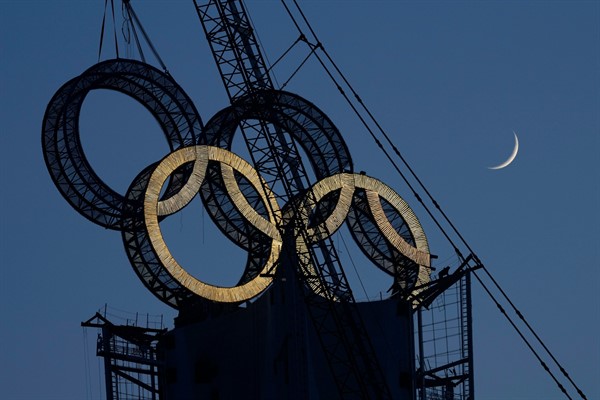Beijing is in a frenzy to conclude its final preparations for the upcoming 2022 Winter Olympics, as the countdown begins toward the Games scheduled to begin Feb. 4. With fewer than 10 days to go until the opening ceremony in Beijing, operations in steel mills and high-emission businesses across the capital, as well as in the neighboring province of Hebei, have been brought to a halt, in order to clear smog from the atmosphere and deliver clear blue skies for the gala affair. As the first host to rely completely on artificial snow for the Games, China has deployed machines to pump out powder on the slopes of Zhangjiakou, which in recent years has been transformed from an arid agricultural city to a tourist destination for its upscale ski resorts—a transformation that has imposed considerable strain on the region’s water supply.
China has come a long way since 2008, when it hosted the Summer Games. Far more confident in its capabilities and assured of its rise to world-power status, Beijing has “nothing to prove” at this point, as Amanda Shuman, a China researcher at the University of Freiburg, told The Associated Press. “2008 was a ‘coming out’ party and all this one does is confirm what we’ve known for the last decade,” Shuman added.
Even without the pressure of wanting to demonstrate its newfound status, pulling off the Olympics spectacle is nevertheless more than just a matter of national pride. For Beijing, it also serves as a testament to the success of Chinese President Xi Jinping’s leadership and the direction in which he is steering the country. The competition’s importance to Xi is reflected in the time he has invested into overseeing preparations: He has visited Olympic venues five times to check on progress since the preparation process began in 2017, while centralizing decision-making, in keeping with his leadership style, according to reports from The New York Times.

